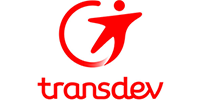
Transdev acknowledges the agreement of the Council of transport ministers regarding the political pillar of the 4th railway package. Echoing the statements by Jean-Marc Janaillac to the European Parliament a few days ago, Transdev considers that this agreement is an unprecedented step backwards in terms of European rail policy. The Commission’s initial objective was to set up a harmonised and open rail area, one that would revitalize this sector and make it competitive relative to road transport. In the very year of the COP 21, this objective has therefore been abandoned by the Member States.
In terms of governance, under pressure from historical operators, integrated structures are now authorised, which will do nothing to increase the financial transparency of these dominant groups. In terms of the awarding of public service contracts, the increasing number of exceptions demanded by small States and the new system’s roll-out now pushed back to 2026 have stripped any sense from the initial objective, which was to strengthen the competitiveness of regional rail services relative to road transportation by opening up these markets, as the only venue for fostering innovation, service quality and lower costs for communities.
But with 2026 simply being the target date for the new system’s mandatory implementation, this doesn’t mean that France has to wait until then to move and to experiment with the regulated opening of the TER and TET rail systems, as has already been done in other countries, namely Germany and Sweden. With the planned closings of certain TET lines, the decline of the railway sector is already picking up steam in France. It is therefore urgent for the State to give the Regions – as they’ve been demanding since last year – the ability to select new operators for the operation of certain TER and TET lines and thus to lower costs, along the lines of the experiments by the German Länder (3% decrease of their train-km subsidy in 10 years as opposed to a 22% increase for the French regions during this same period).
Transdev would therefore like the Commission and the European Parliament, as part of the three-way discussions that will start on 11 November, to amend this agreement so that it aligns with the EU’s ambitions with regard to the modal shift, as described in the European Commission’s white paper on transport.
About Transdev
Transdev was formed in March 2011 from a merger between two world-leading passenger transport providers – Veolia Transport and Transdev.
Before merging, Transdev had been present in Australia since 1999, operating a ferry business in Brisbane and an extensive bus network in North Sydney. Transdev won the Brisbane CityCats and CityFerries operations in 2003 and successfully retendered, winning the contract for a further ten years, extending until 2020. Transdev took over the Sydney Shorelink business in 2001 operating bus services in Sydney’s North Shore.
Subsequent to the merger in 2011, Veolia Transdev (now Transdev) won the franchise for Sydney Ferries and operates this business (Harbour City Ferries) with its JV partner Transfield Services. It also won industrial contracts in Central Queensland and, with its JV partner Buslink, won the Ichthys project in Darwin. In early 2013 Transdev won the Melbourne bus tender and Transdev Melbourne will run this franchise from August 2013.




Comments
There are no comments yet for this item
Join the discussion